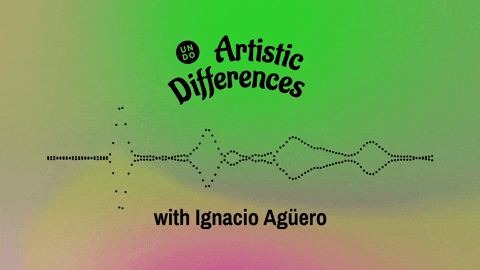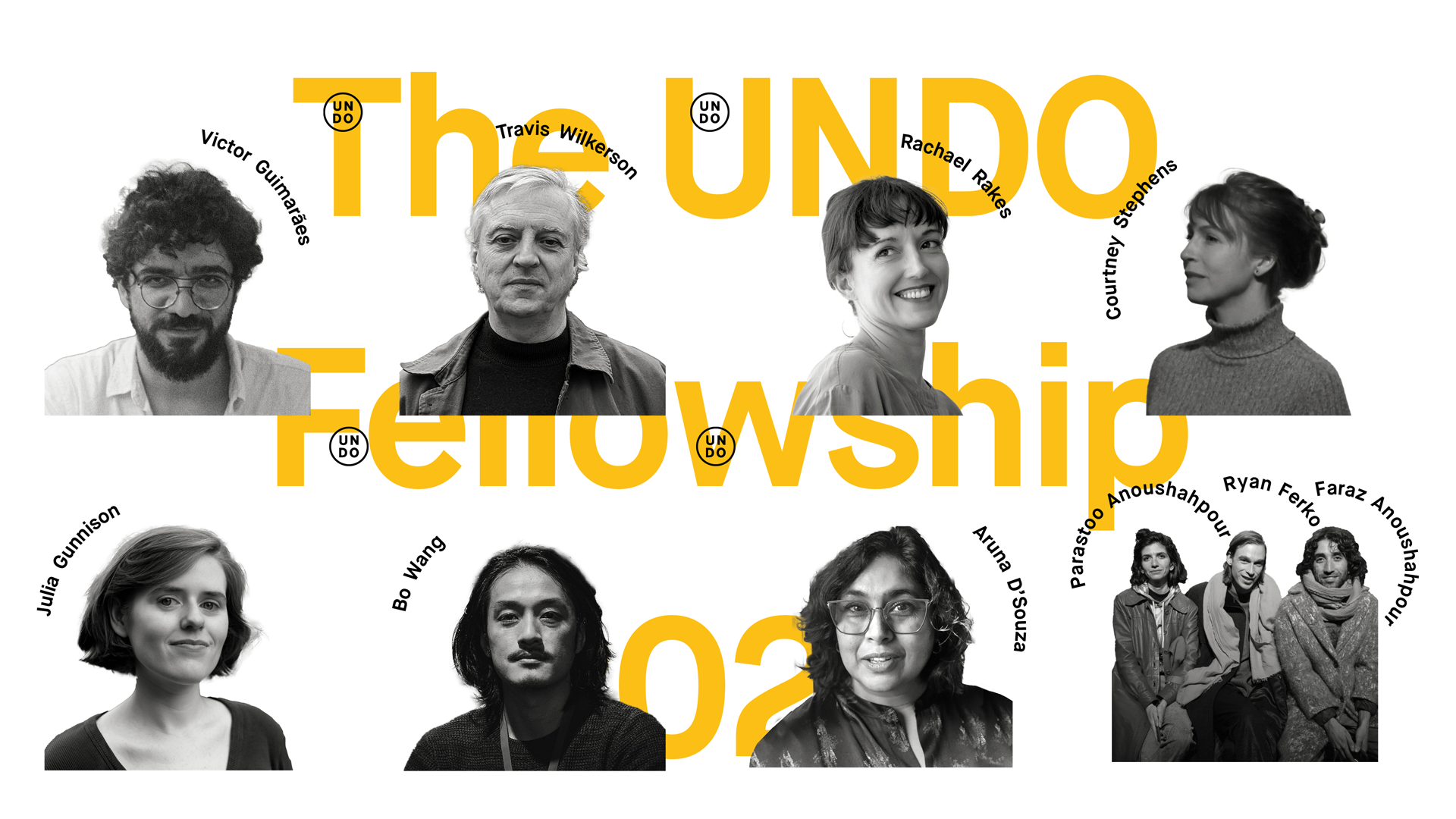Pills UnionDocs Brings Auteurs Together Pills
by Lisa Riordan Seville
Tina Antolini has a thing for words. When she speaks, she savors them. As a producer for National Public Radio, words are her business. But sometimes, they are her subjects.
Shawn Wen and Michael Hyatt.I’ve been obsessed with language for a long time,” said Antolini in a phone interview. “Every time someone says a phrase, I’ll end up having a conversation about where the heck it came from.”
On stage in front of 400 people in a dark theater at the New York MoMA in late February, Antolini took up the origin of one word in particular—“whatever”.
Antolini’s audio and live performance was one of six pieces that the members of the UnionDocs Collaborative debuted at Documentary Fortnight, the museum’s annual festival of non-fiction film. The pieces were experimental, but it was fitting, because the Collaborative too is an experiment started this year by the Brooklyn non-profit UnionDocs.
Somewhere between an informal critique group and a graduate program, Collaborative members trade a one-year commitment and $3,000 for two mentors, masters classes, and most importantly, access to like-minded people from many different disciplines.
For Rahul Chadha, an aspiring filmmaker with a background in journalism, shooting video and talking theory with radio producers, filmmakers, critics, and architects is a brave new world, the kind he hoped for when he signed on for the program.
“What they do really inspires me,” said Chadha. “I’m getting exposed to all of these different modes of storytelling.”
The project is part of a do-it-yourself approach to pedagogy cropping up in design and art communities from California to Toronto. The goal at UnionDocs isn’t to dream up buildings or lay down paint, but to think about what it means to tell true stories, and how to document them.
The idea for the program sprouted from the possibilities, and problems, of documentary today. “It’s very clear that anyone can create and present the way that they think the world is,” said Jesse Shapins, Co-Mentor for the Collaborative, “and people will believe it.” The group tries to rub up against that belief, asking questions about truth rather than swallowing it whole.
Christopher Allen and Johanna Linsley.The 11 members devote evenings and weekends to reading Roland Barthes and deconstructing documentaries on Lil Wayne, scoping the many ways that their predecessors have told nonfiction stories on film. In between, they work on a yearlong project, a group documentary meant, at its most ambitious, to question the premises and problems behind the “myth” that documentary is necessarily synonymous with truth.
Founded in 2002, UnionDocs is one of several micro-cinemas and roving film series in Brooklyn that are making room to see and discuss documentaries. Unlike the works of Michael Moore, or the sprawling epics of Ken Burns, most docs are made on shoestring budgets and are never slated for wide distribution.
Since the beginning, the core group at UnionDocs has been interested in discussing and making work as much as showing it. Over the years Christopher Allen, Jesse Shapins, Johanna Linsley, Paul Kiel, and Kara Oehler began to collaborate to make “documentaries” that played with the possibilities of the term.
“We are looking at what representing the real is, right now, in contemporary life,” explained Allen, Executive Director of UnionDoc…….
Find artists, projects, and media by keyword.
Support UnionDocs’ next phase and new building by becoming a member
Peek in the window of our bustling building in NYC and tune into the ideas and energy bubbling up from the UNDO Center.
Tune into cutting-edge, powerful and poetic documentary programs and connect to conversations with the artists and thinkers passing through.
Now available at the Apple Store.
ANNUALLY
Keep it simple and save. Unlimited access to our sweet offerings for a reduced, annual fee and receive some added benefits.
LOCAL, ARTIST, STUDENT OR SENIOR
In the neighborhood, a working artist, student or senior? This membership is for you. Fill out a quick form for a discount code to an annual membership.
ANNUAL EDITIONS MEMBERSHIP
Get all of the benefits of the Annual UNDO Membership plus an annual subscription to UnionDocs Editions, a set of publications, merchandise or special objects.
UnionDocs is grateful for support from:

Do you have Artistic Differences?
Join our monthly cineclub each month & listen in to the interview podcast for a thoughtful community around films that demand deeper discussion.
The UNDO Fellowship
UnionDocs is honored to share the selection of artists and writers for the UNDO Fellowship.
News
- Sound Fields Journal Issue 2 is now taking pitches for essays and Q&A's 'til December 15!
- UnionDocs Alums Presenting Films in This Year’s DOCNYC!
- Everything You Have Is Yours, produced and edited by UNDO CoLAB alum Colin Nusbaum is having its US Premiere at DOC NYC on November 15 and 16!
- The JustFilms Fall Open Call for feature documentary film production grants is open till December 6!
- Short List and Winner’s Circle lineup released for the 2024 DOC NYC Festival, running in-person November 13-21!
- Emily Drummer's film In the Keeping, fiscally sponsored by UnionDocs, is awarded an LEF Moving Image Preproduction Grant!
- Treasures from Trash: Shorts from Samba Félix Ndiaye curated by Amélie Garin-Davet playing at L'Alliance New York on October 30!
- Applications for the DocX Residency - with a $20,000 award for documentary artists and independent scholars - are open till October 14!
- The 25th Annual Woodstock Film Festival is coming to the Hudson Valley this October 15th to 20th!
- Applications for the 2025 Frameline Completion Fund close on November 1st!
- Submissions for the True/False Film Festival are open until November 1st!
- Holding Back the Tide by Emily Packer, will have a week-long run at DCTV in New York, from September 6 -12!
- Applications for the Aesthetica Art Prize are open till August 31!
- Theatrical release of War Game at Film Forum - Aug 2!






